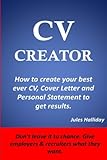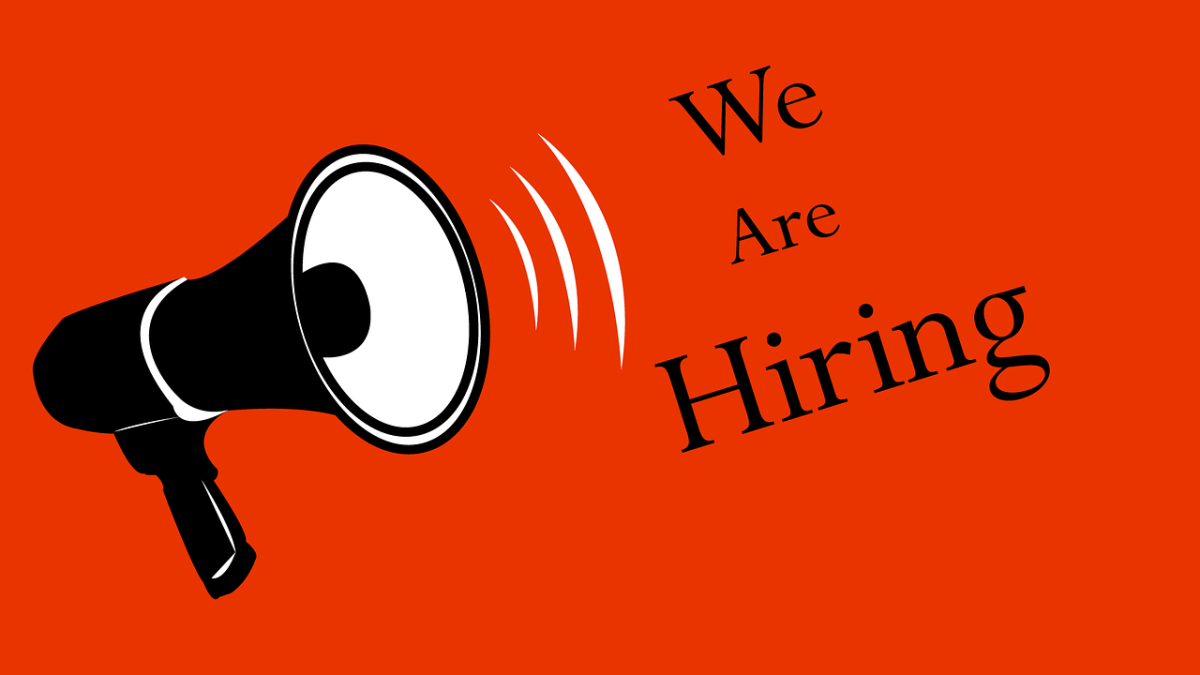- HubPages»
- Business and Employment»
- Employment & Jobs»
- Interviewing for a Job
How to Answer Behavioural Questions in a Job Interview

Examples of Direct Behavioural Job Interview Questions
- What makes you angry?
- How do you react when you are angry?
- What is your pet peeve?
- What annoys you?
- What frustrates you at work?
- How many sick days have you had in the past year?
- What steps do you take to ensure you are never late for work?
- How do you cope under pressure at work?
- What motivates you?
Examples of Hypothetical Behavioural Questions
- What would you do if a customer logged a complaint about you?
- How would you react if your manager gave you negative feedback?
- If you though a colleague was stealing from the company, what would you do?
- What would you do if you were going to be late for an important appointment?
Examples of Competency Based Behavioural Questions
- Tell me about a time when you have disagreed with your boss
- Give me an example of when you have had to deal with an unhappy customer
- Tell me about a time when you have had to deal with conflict at work
- When was the last time you took a risk and how did it turn out?
What Are Behavioural Questions?
Behavioural questions are designed to uncover how you handle certain situations in a work place environment or how you might cope with challenges or dilemmas in the future. During a job interview, the hiring manager will be trying to build up a picture of how you cope under stress or how you might react with the organisation's customers and members of staff should you be fortunate enough to be hired.
Although they tend to be quite direct, often, behavioural questions also include hypothetical and competency based questions.
Hypothetical questions are questions that normally begin with “What would you do if…” “How would you react if…” In other words; real answers for imaginary situations that you may not have yet encountered, but may experience in the future.
Competency based questions are ones in which your answer would include examples of situations you have already encountered during your career or personal life to demonstrate transferable skills. These questions typically begin with, "Tell me about a time when...", or "Give me an example of..."
Interviewers use direct, hypothetical and competency based lines of behavioural questioning to find out not only how you have behaved or dealt with situations in the past, but as a predictor of how likely you will act in the future. You could be the most experienced and qualified candidate on the planet, but if the hiring manager doesn't think you will fit in with the current team or be in synergy with the company's values, it is unlikely you will be hired.
For those of you who know me and readers who have followed my hubs, you will know one of my top mantras is "People buy people." I'm not talking about the slave trade here! What I mean is, that in the world of long-term careers, relationships will always outlive and be stronger than skills and experience. We spend a large chunk of our days at work, so it is important for all concerned that the working environment is harmonious, so on that note, here's how to deal with behavioural questions in a job interview to maximise your chances of success.

Pet Peeve Questions
Typical examples of questions to assess your behaviour in times when things bug you are:
- “What annoys you?”
- “What makes you angry”
- “How do you react when you are angry”
The interviewer is most likely to be asking this to find out if you are a good fit for the company or team, but go steady; you don’t want to sound like an old moaner or look like you will lose your cool at the drop of a hat!
Choose something fairly insignificant as your answer for this, but keep it related to work. Saying that you hate it when someone talks loudly on the phone or your blood boils when customers want a refund is unlikely to gain you any points.
Play it down. It is acceptable to say that you are not keen when someone is consistently late for work without good reason, but you understand that it is your supervisor’s responsibility to address this issue and you don’t let it affect your work.
Maybe you are a manager? In this instance, you may choose to talk about a situation that you have to deal with, such having to reprimand one of your staff. If this is the case, then make sure you include that although it annoys you, you know exactly how to deal with it.
- “When was the last time you were angry and what happened?”
The interviewer is looking to see how you will deal with challenging situations and if you have the ability to stay calm and professional. A great standard answer to this question could be something along the lines of:
“Anger to me means loss of control. I do not lose control. When I get stressed, I step back, take a deep breath, thoughtfully think through the situation and then begin to formulate a plan of action.”
Nice, simple and succinct.
Quick Poll
How do you feel about behavioural questions in a job interview?
Persuasion & Sales Tactics
If you are interviewing for a sales or management role, you can bet your life you will be asked some questions to determine how persuasive or convincing you are.
- “How persuasive are you?”
- “Show me how convincing you are”
- “Give me an example of when you have changed someone’s mind”
Don’t worry! These questions do not mean you have to start begging! It is really about your abilities to lead, coerce or direct.
Think of a time when you had to build trust with your co-workers in order to convince them to do a task. Talk through the steps you took to build trust, the relationships you developed, the steps you took and the positive outcome. Did you have a team meeting or was success down to having individual conversations?
Tell a story. What did you have to do? How did you go about it? What was the outcome? Use this as a template for your beginning, middle and end.
For sales roles, the following are typical examples:
- "You are one sale away from hitting your target, and have one last chance to achieve this. What sales technique would you pull out the bag?"
- "What is the sale you are most proud of?"
- "Give me an example of your up-selling techniques."
Here, the hiring manager is looking to ascertain your integrity and honesty when it comes to selling products or services. They would much rather hear that you listened to the customer to establish their needs than of underhand hard sell techniques.

Responding to Feedback
During your career, you will receive lots of feedback, and it's great when it's positive, but how do you react when you receive criticism?
- “Tell me about a time when your work was criticised. How did you handle the situation?”
- “How do you respond to negative feedback?”
The interviewer is trying to establish how you will react to feedback and if you will use any negative comments to move forwards and improve. If you are asked questions, such as these, it is important to show the hiring manager that you know that feedback is important in order to drive your career, and ultimately the business forwards.
You could relate your answer to a former appraisal and show the improvement you made by the time your next one came around. Allow the interviewer to see that you understand that criticism can be a positive step towards improvement and success.
- “How do you react when you receive "No" for an answer?”
Avoid here, any answers that may suggest you never take no for an answer or that you react badly. You could say something like, “I understand that sometimes my ideas may be rejected, but in that instance, I always ask for feedback so I can take it on board and improve next time.”

Dealing With Challenges, Pressure or Stress
Everyone encounters stressful situations at work, but it's how you deal with them that counts. The interviewer won't want to hire a cry baby or someone who runs to their supervisor at the first sign of trouble, so make sure your answers avoid drama or wobbly emotions.
- “Can you work under pressure?”
This is a closed question so it can be tempting to answer with “Yes”, “No” or “Sometimes” but what does that tell the interviewer? Not much and it may leave you open to more probing questions.
All the interviewer is looking to establish is your ability to cope in stressful situations or perhaps meet challenging deadlines, so a great answer would be:
“Yes, I can work under pressure, however I always ensure I plan in advance as much as possible, which I find reduces the chance of me feeling pressured considerably.”
Or
“Yes, in fact in my previous role I often had to work to short deadlines, so I always made sure I was organised and planned for these dates accordingly.”
Or
“Yes. I am very target driven and the pressure to achieve and exceed company expectations is an area in which I thrive.”
I hope you notice that I haven’t given you an answer for “No” or “Sometimes”.
Answers to stress or pressure related questions must be practised as much as possible prior to the interview. If you are an absolute bag of nerves when answering, you won’t look sincere!

Dealing With Conflict
I'd love to report that it's a peachy world out there, but sadly, it's not. Most of us encounter conflict at work or at least a less than harmonious time every now and then. The interviewer is looking to see how accountable you are in such situations.
- “Give me an example of a situation where you faced conflict or difficult communication problems”
- “Tell me about a time when you had to deal with a conflict at work”
- “How do you deal with conflict?”
Companies on the whole look to hire employees who can calmly deal with a multiple of situations calmly and without or at the very least; minimal conflict.
When asked this question, avoid at all costs belittling anyone you have previously worked with, and keep your answer factual and to the point.
Use one example only! You don’t want to look like you have had lots of arguments or disagreements in the past, which may mean that you will be a firecracker in the new workplace.
If you have dealt with conflict in the past, now is the time to highlight how you can rise above conflict, take control of the situation and diffuse any heated emotions in a mature, calm way.
If you don’t have a specific example where you were the hero of the hour, try to think of a situation where you worked with others to rectify the problem to demonstrate your team working and communication skills. If you really haven't encountered any conflicts at work before, say so, but give an example of what you would do in that situation. If you don't the interviewer may think you are either not very aware of your surroundings or are the type to pass the buck in times of strife.
As always, a work based example is best but I am sure that if you don’t have a real life professional answer, then you will have come up against conflict or communication problems in your personal life. If you choose something personal then think first of the environment in which it occurred. A drunken, pub Saturday night story is probably not the best to highlight your expertise in conflict management!
Difficult Decisions
Decisions, decisions, decisions. Do you stick your neck out and make decisions or do you always ask the opinions of others? These are popular behavioural questions during a job interview.
- “What do you find are the most difficult decisions to make?”
- “What was the most difficult decision you have made in the last year?”
- “Tell me about a time when you had to make a difficult decision without all the information you needed”
- “When was the last time you took a risk and how did it turn out?”
When choosing your answer here, the trick is to show the interviewer that you don’t shy away from making difficult decisions and you are prepared to take calculated risks.
You may be interviewing for a more senior position than your previous role so in that case you could give a hypothetical answer.
“Although I have not had to directly terminate anyone’s contract, I would imagine that would be a difficult decision to make. In that situation, I would ensure that I had taken the appropriate steps in following company procedure and protocol to performance manage the member of staff so that the final decision would be easier to make.”
Or
“I believe difficult decisions are the ones where you have limited information on the facts, so if faced with such a challenge it is important to conduct further research.”
- “What is the most difficult situation you have faced?”
- “Define difficult”
Similar to the above questions, however, this time the interviewer is trying to decipher what you deem as difficult. Are you on the same wavelength? Are you pessimistic and get stressed at the slightest of challenges?
Think of a difficult situation you have faced and then detail how you overcame it.
Learn why NOT to include that you are highly-motivated on your resume
Motivation
Urgh! I hate questions about motivation. They're very subjective and there always has to be something in it for you in order to be motivated, so they can be tricky to answer.
- “What motivates you?”
If you’ve got that you’re a highly-motivated person on your CV or resume, you need to read my CV Creator book to find out why you should remove it.
The answer to this question can only be based on your past experiences so choose something that will help the interviewer to understand what makes you tick in a way that shows you will do well at and enjoy the role.
Whatever you choose to answer, make sure that it is honest, sincere and you have the facts to back it up. What do you actually enjoy while at work? Did you have an experience where you got that buzzy feeling of excitement? What’s the one task that you love doing, because you know you do it well; what motivates you to keep doing it well?
“Knowing that I am going to do a great job motivates me as I want to be successful.”
Or
“Exceeding sales targets and in turn increasing my commission has always been a driving factor in motivating me to be the best sales person I can be.”
Or
“Ensuring that each and every customer is happy motivates me so that each year customer retention is increased.”
- “Are you self- motivated?”
This question differs in that the interviewer is asking if you are able to be motivated to work with enthusiasm with either limited or no instruction.
“Yes, I enjoy my work and I always look for ways to set myself challenges or bring new ideas to the table.”
- “What drives you to achieve your objectives?”
In other words “If I set you a new task or challenge, can I feel confident that you will be committed and get the job done?”
“Knowing that I have a challenge and can get it done on time and with great results drives me to succeed. I take pride in my work and want to be the very best I can be.”
Keep in touch
Let me know about any interviews where you have been asked behavioural questions and how you got on. I'd love to hear from you.









